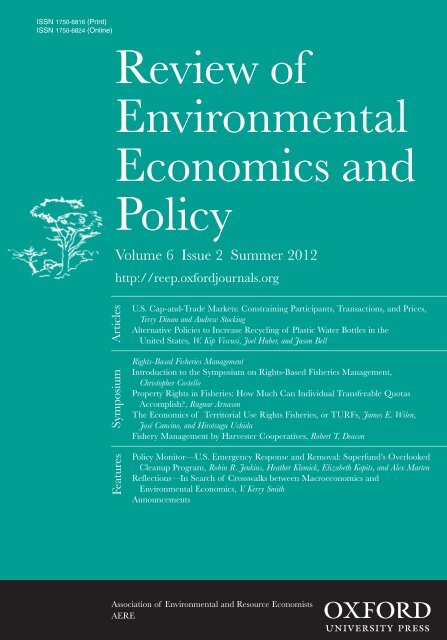“绿色”并不容易:挪威电动汽车基础设施激励措施的经验教训
IF 6.6
3区 经济学
Q1 ECONOMICS
引用次数: 1
摘要
世界各国政府正计划加快交通部门脱碳和电气化的努力。在这篇文章中,我描述了充电站在电动汽车市场中发挥的关键作用,并讨论了充电基础设施的缺乏如何阻碍电动汽车的采用。然后,我将讨论挪威在充电基础设施和消费者补贴激励方面的经验。最后,我强调了挪威的主要经验教训及其对制定有效政策以支持电动汽车采用的影响。本文章由计算机程序翻译,如有差异,请以英文原文为准。
It’s Not Easy Being “Green”: Lessons from Norway’s Experience with Incentives for Electric Vehicle Infrastructure
Governments around the world are planning to accelerate their efforts to decarbonize and electrify their transportation sector. In this article, I describe the key role charging stations play in electric vehicle (EV) markets and discuss how a lack of charging infrastructure can pose a barrier to EV adoption. Then I discuss Norway’s experience with incentives for charging infrastructure and consumer subsidies. I conclude by highlighting key lessons from Norway and their implications for designing effective policies to support EV adoption.
求助全文
通过发布文献求助,成功后即可免费获取论文全文。
去求助
来源期刊
CiteScore
10.80
自引率
0.00%
发文量
25
期刊介绍:
The Review of Environmental Economics and Policy fills the gap between traditional academic journals and the general interest press by providing a widely accessible yet scholarly source for the latest thinking on environmental economics and related policy. The Review publishes symposia, articles, and regular features that contribute to one or more of the following goals: •to identify and synthesize lessons learned from recent and ongoing environmental economics research; •to provide economic analysis of environmental policy issues; •to promote the sharing of ideas and perspectives among the various sub-fields of environmental economics;

 求助内容:
求助内容: 应助结果提醒方式:
应助结果提醒方式:


